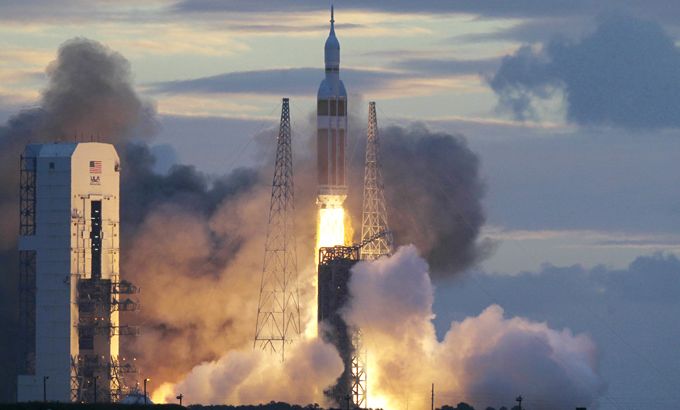
The new space race
Is NASA’s Orion spacecraft the start of a new era of space exploration or the last gasp of a fading empire?
“There’s your new spacecraft, America”.
Those were the words NASA’s mission control commentator used as the Orion capsule came safely back to earth.
Keep reading
list of 4 itemsIndia’s income inequality widens, should wealth be redistributed?
Biden slaps new tariffs on Chinese imports, ratcheting trade war
One of the biggest hurdles for athletes on the Olympic path: Money
It was a declaration that spoke of politics and prestige. The United States demonstrating its superpower status to the world.
But what of the reality? At the height of the Cold War, the US devoted over four percent of its total federal budget to space exploration.
Today NASA gets less than a tenth of that. The US space agency is a shadow of its former self.
The Orion will not fly again until 2018 at the earliest. But the new space race is not with the Soviet Union; it is with private enterprise.
One crowdfunded private consortium, Mars One, is aiming to put humans on the Red Planet a decade earlier than NASA.
Another company, Planetary Resources, is planning to mine asteroids for rare metals.
And for the super-rich, there is the promise of space tourism from Richard Branson’s Virgin Galactic.
So what is the future of space travel?
Presenter: Adrian Finighan
Guests
Miles O’Brien, Science and Space Correspondent, in Washington DC
Robert Massey, Deputy Executive Secretary, Royal Astronomical Society, in Bristol, England
Yuri Karash, Space Policy Expert, in St Petersburg, Florida